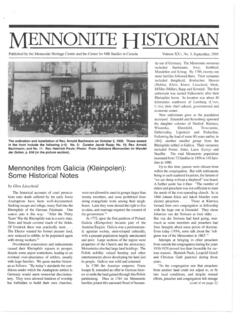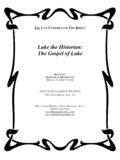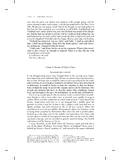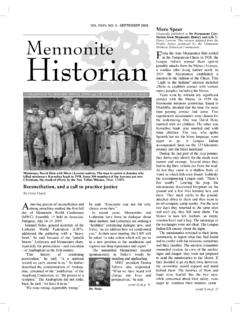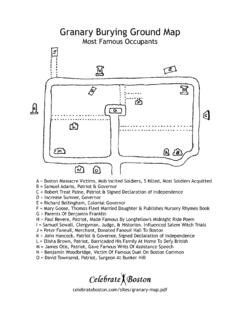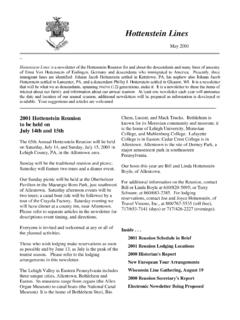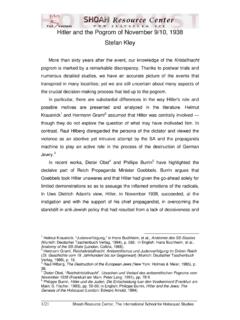Transcription of family Dillardfamily Dillard - MatsonFamily.net
1 The ancestry of Bart Welch .. page 16 family Dillardfamily Dillardfamily Dillardfamily Dillard (1630 - 1783) d'Illard from France?d'Illard from France?d'Illard from France?d'Illard from France? Much controversy exists as to the origin of family Dillard . Some think the roots of the family are French, from the ancient family d'Illard, and specifically, from Carbonne d'Il-lard, a companion of William the Conqueror in the Norman invasion of England in 1066.
2 Others reject the Carbonne d Illard connec-tion and instead believe that family Dillard originated as French Huguenots who migrated to England, perhaps after the Saint Bar-tholomew's Day massacre in 1572 when many Huguenots fled to England, or perhaps during other French religious wars in the 1620's. Still others believe the Dillard line first originated in the Wiltshire area of southern England, and that the name Dillard is likely an alliteration of an English name such as Til-liard or Tilyard or some other similar name. Prior to the 1600's most people could not read nor write and hence, did not know how their names were spelled.
3 Those who did write did so phonetically, with little regard to formal spelling rules such as we follow today. Name alliterations were common in those days. The more serious genealogists claim that evidence suggests the first documented Dillard came from England and that no evidence, other than family lore passed down through the generations, exists of a French connec-tion, and because of that it must be rejected. Although, there is scanty evidence of Dillards in England also. Dillard in America Dillard in America Dillard in America Dillard in America George9 Dillard (ca 1630 ca 1704): George landed at Jamestown in the Virginia Colony after a voyage from England in 1650, or shortly before, likely as a young, illiterate indentured servanta (as were most immigrants of that period).
4 1650 was, indeed, very early in the colonization of the North American con-tinent, and as such, George would be consid-ered one of the original settlers. a Indentured Servants: Many persons were brought to the Colonies as indentured servants. Their passage fare would be paid in return for indentured servitude of four to seven years, depending on age and skills. After this period of ser-vitude they became free and could own land. Jamestown and the Virginia CoJamestown and the Virginia CoJamestown and the Virginia CoJamestown and the Virginia Collllonyonyonyony A historian has written, Gold, trade, tillage represent the three stages in the history of colonization, and the greatest of these.
5 Is tillage . This was never more true than in the Americas. Shortly after the voyages of Columbus, Spaniards were explor-ing across the north and the south of the continent, raping it of its gold and treas-ures. Then came the Dutch and the French with their outposts, trading European goods with the Indians for furs. It was not until later that the English were the first to recognize the potential of the Americas as farmland, and it is for this reason alone that today we speak English and not the language of the Spanish, French, Portu-guese, Scandinavian, or Dutch, all of whom had very early experiences in the New World.
6 England started later than other European nations, but was rapidly emerging as an economic power. Farsighted leaders recognized the natural resources available in the New World and the economic benefit that would accrue to England if they were tapped. A case for colonization was made and to promote it a propaganda campaign was launched, touting the New World as a virtual Garden of Eden. Several compa-nies were chartered by the English for colonization purposes. Some adventurous in-dividuals who wished to begin a new life were found to travel to the New World, and when there were not enough to fill the boats, the English would clear the jails to do the ancestry of Bart Welch.
7 Page 17 so. In 1605 explorative journeys were made and the first colonies attempted but soon aborted. It was not until May, 1607 that the first enduring English plantation was It was on the James River in Virginia, and was named Jamestown. Of the 144 persons who embarked on the trip in three vessels, only 105 survived the jour-ney. When they arrived, life was even more trying. Of the 105 who landed, only thirty-eight survived through the year -- starvation and disease took its toll. The col-ony would have been abandoned, and almost was, if not for the leadership of Captain John Smith.
8 John Smith was a soldier-of-fortune who had a propensity to alienate all about him into enemies. Nonetheless, he had the gifts of a frontiersman, including a knack for handling Indians, and the settlers were sensible enough to recognize it. They chose him as their leader, although later there was a plot to assassinate him but he made that largely unnecessary when he severely injured himself when he blew himself up with a barrel of gunpowder. Over the years more ships came, pouring out new settlers. Many of them died, many others fled back to England on the next ship.
9 But some remained and the Col-ony grew. By 1628 there were 2,500 living in the Virginia Colony. The Indians kept the population in check by massacring large numbers of the colonists, but eventually the Colony became better armed and eliminated the surrounding Indians. John Smith was once captured by the Indians and Chief Powhatan was about to declare a death sentence on him when Powhatan's fair daughter, Pocahontas, took a liking to Smith and wrapped herself in his arms, thereby saving his life. The Colony floundered for years, never returning a profit to the London company that sponsored it, and the company failed.
10 The King then took over control of the Colony and after instituting several progressive measures (offering headright grants and the establishment of a governing body), growth continued. The Colony did not become truly viable, however, until it was discovered how suitable the Virginia soil was for the growing of tobacco. With tobacco the economy boomed. Tobacco was planted up and down the James River, and up and down the coast. By 1630 they had created a glut on the world's tobacco market. Nevertheless, growth continued and more farms were established.
